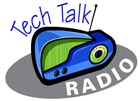 Well what an exciting week it’s been, Google came to Sydney last week, and I, Andrew McColm, jumped on the 6.45am Virgin flight out of Melbourne to find out first hand, what Google wanted developers to develop. It wasn’t long into the keynote address by Alan Noble, Google Australia’s Engineering Director, that we learnt about Google Gears, a small application which Google promises will allow us to use the web offline. Like Microsoft’s Outlook transitions seamlessly between the online and offline world, Google Gears will do the same for our web experience.
Well what an exciting week it’s been, Google came to Sydney last week, and I, Andrew McColm, jumped on the 6.45am Virgin flight out of Melbourne to find out first hand, what Google wanted developers to develop. It wasn’t long into the keynote address by Alan Noble, Google Australia’s Engineering Director, that we learnt about Google Gears, a small application which Google promises will allow us to use the web offline. Like Microsoft’s Outlook transitions seamlessly between the online and offline world, Google Gears will do the same for our web experience.
The other main point I got from developer’s day, was the importance Google places on maps. 80% of data has a geospatial reference, that is, a reference to some physical point on the planet. Google Earth and Google maps are at the forefront of this push as the search engine juggernaut breathes life into this product with a new package of tools allowing developers even more flexibility to use Google maps in ways you can only dream of on a website near you.
Our hosts put on a generous lunch and a great selection of drinks and nibbles, to keep over 700 developers keen and interested from 9 in the morning right through to 6 in the evening. The complimentary Google T-shirt was an unexpected departing gesture and a nice addition to the holographic notepad, google pen and Google stickers – bad luck to those who left early. Oh and did someone say Microsoft launched something on the same day?
For more about Google Developer Day 2007 in Sydney, tune in to Tech Talk Radio, or down load the podcast.
Filed under: Andrew McColm, Google, Web 2.0 | Leave a comment »


